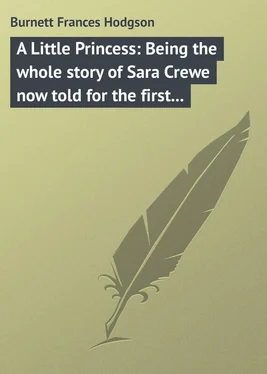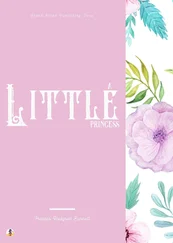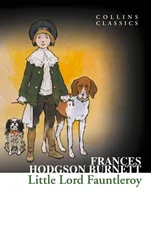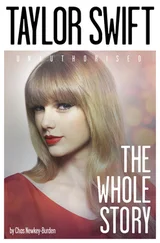Frances Burnett - A Little Princess - Being the whole story of Sara Crewe now told for the first time
Здесь есть возможность читать онлайн «Frances Burnett - A Little Princess - Being the whole story of Sara Crewe now told for the first time» — ознакомительный отрывок электронной книги совершенно бесплатно, а после прочтения отрывка купить полную версию. В некоторых случаях можно слушать аудио, скачать через торрент в формате fb2 и присутствует краткое содержание. Жанр: foreign_prose, на английском языке. Описание произведения, (предисловие) а так же отзывы посетителей доступны на портале библиотеки ЛибКат.
- Название:A Little Princess: Being the whole story of Sara Crewe now told for the first time
- Автор:
- Жанр:
- Год:неизвестен
- ISBN:нет данных
- Рейтинг книги:3 / 5. Голосов: 1
-
Избранное:Добавить в избранное
- Отзывы:
-
Ваша оценка:
- 60
- 1
- 2
- 3
- 4
- 5
A Little Princess: Being the whole story of Sara Crewe now told for the first time: краткое содержание, описание и аннотация
Предлагаем к чтению аннотацию, описание, краткое содержание или предисловие (зависит от того, что написал сам автор книги «A Little Princess: Being the whole story of Sara Crewe now told for the first time»). Если вы не нашли необходимую информацию о книге — напишите в комментариях, мы постараемся отыскать её.
A Little Princess: Being the whole story of Sara Crewe now told for the first time — читать онлайн ознакомительный отрывок
Ниже представлен текст книги, разбитый по страницам. Система сохранения места последней прочитанной страницы, позволяет с удобством читать онлайн бесплатно книгу «A Little Princess: Being the whole story of Sara Crewe now told for the first time», без необходимости каждый раз заново искать на чём Вы остановились. Поставьте закладку, и сможете в любой момент перейти на страницу, на которой закончили чтение.
Интервал:
Закладка:
Frances Hodgson Burnett
A Little Princess: Being the whole story of Sara Crewe now told for the first time
THE WHOLE OF THE STORY
I do not know whether many people realize how much more than is ever written there really is in a story – how many parts of it are never told – how much more really happened than there is in the book one holds in one’s hand and pores over. Stories are something like letters. When a letter is written, how often one remembers things omitted and says, “Ah, why did I not tell them that?” In writing a book one relates all that one remembers at the time, and if one told all that really happened perhaps the book would never end. Between the lines of every story there is another story, and that is one that is never heard and can only be guessed at by the people who are good at guessing. The person who writes the story may never know all of it, but sometimes he does and wishes he had the chance to begin again.
When I wrote the story of “Sara Crewe” I guessed that a great deal more had happened at Miss Minchin’s than I had had time to find out just then. I knew, of course, that there must have been chapters full of things going on all the time; and when I began to make a play out of the book and called it “A Little Princess,” I discovered three acts full of things. What interested me most was that I found that there had been girls at the school whose names I had not even known before. There was a little girl whose name was Lottie, who was an amusing little person; there was a hungry scullery-maid who was Sara’s adoring friend; Ermengarde was much more entertaining than she had seemed at first; things happened in the garret which had never been hinted at in the book; and a certain gentleman whose name was Melchisedec was an intimate friend of Sara’s who should never have been left out of the story if he had only walked into it in time. He and Becky and Lottie lived at Miss Minchin’s, and I cannot understand why they did not mention themselves to me at first. They were as real as Sara, and it was careless of them not to come out of the story shadowland and say, “Here I am – tell about me.” But they did not – which was their fault and not mine. People who live in the story one is writing ought to come forward at the beginning and tap the writing person on the shoulder and say, “Hallo, what about me?” If they don’t, no one can be blamed but themselves and their slouching, idle ways.
After the play of “A Little Princess” was produced in New York, and so many children went to see it and liked Becky and Lottie and Melchisedec, my publishers asked me if I could not write Sara’s story over again and put into it all the things and people who had been left out before, and so I have done it; and when I began I found there were actually pages and pages of things which had happened that had never been put even into the play, so in this new “Little Princess” I have put all I have been able to discover.
FRANCES HODGSON BURNETT.CHAPTER I
SARA
Once on a dark winter’s day, when the yellow fog hung so thick and heavy in the streets of London that the lamps were lighted and the shop windows blazed with gas as they do at night, an odd-looking little girl sat in a cab with her father and was driven rather slowly through the big thoroughfares.
She sat with her feet tucked under her, and leaned against her father, who held her in his arm, as she stared out of the window at the passing people with a queer old-fashioned thoughtfulness in her big eyes.
She was such a little girl that one did not expect to see such a look on her small face. It would have been an old look for a child of twelve, and Sara Crewe was only seven. The fact was, however, that she was always dreaming and thinking odd things and could not herself remember any time when she had not been thinking things about grown-up people and the world they belonged to. She felt as if she had lived a long, long time.
At this moment she was remembering the voyage she had just made from Bombay with her father, Captain Crewe. She was thinking of the big ship, of the Lascars passing silently to and fro on it, of the children playing about on the hot deck, and of some young officers’ wives who used to try to make her talk to them and laugh at the things she said.
Principally, she was thinking of what a queer thing it was that at one time one was in India in the blazing sun, and then in the middle of the ocean, and then driving in a strange vehicle through strange streets where the day was as dark as the night. She found this so puzzling that she moved closer to her father.
“Papa,” she said in a low, mysterious little voice which was almost a whisper, “papa.”
“What is it, darling?” Captain Crewe answered, holding her closer and looking down into her face. “What is Sara thinking of?”
“Is this the place?” Sara whispered, cuddling still closer to him. “Is it, papa?”
“Yes, little Sara, it is. We have reached it at last.” And though she was only seven years old, she knew that he felt sad when he said it.
It seemed to her many years since he had begun to prepare her mind for “the place,” as she always called it. Her mother had died when she was born, so she had never known or missed her. Her young, handsome, rich, petting father seemed to be the only relation she had in the world. They had always played together and been fond of each other. She only knew he was rich because she had heard people say so when they thought she was not listening, and she had also heard them say that when she grew up she would be rich, too. She did not know all that being rich meant. She had always lived in a beautiful bungalow, and had been used to seeing many servants who made salaams to her and called her “Missee Sahib,” and gave her her own way in everything. She had had toys and pets and an ayah who worshipped her, and she had gradually learned that people who were rich had these things. That, however, was all she knew about it.
During her short life only one thing had troubled her, and that thing was “the place” she was to be taken to some day. The climate of India was very bad for children, and as soon as possible they were sent away from it – generally to England and to school. She had seen other children go away, and had heard their fathers and mothers talk about the letters they received from them. She had known that she would be obliged to go also, and though sometimes her father’s stories of the voyage and the new country had attracted her, she had been troubled by the thought that he could not stay with her.
“Couldn’t you go to that place with me, papa?” she had asked when she was five years old. “Couldn’t you go to school, too? I would help you with your lessons.”
“But you will not have to stay for a very long time, little Sara,” he had always said. “You will go to a nice house where there will be a lot of little girls, and you will play together, and I will send you plenty of books, and you will grow so fast that it will seem scarcely a year before you are big enough and clever enough to come back and take care of papa.”
She had liked to think of that. To keep the house for her father; to ride with him, and sit at the head of his table when he had dinner-parties; to talk to him and read his books – that would be what she would like most in the world, and if one must go away to “the place” in England to attain it, she must make up her mind to go. She did not care very much for other little girls, but if she had plenty of books she could console herself. She liked books more than anything else, and was, in fact, always inventing stories of beautiful things and telling them to herself. Sometimes she had told them to her father, and he had liked them as much as she did.
Читать дальшеИнтервал:
Закладка:
Похожие книги на «A Little Princess: Being the whole story of Sara Crewe now told for the first time»
Представляем Вашему вниманию похожие книги на «A Little Princess: Being the whole story of Sara Crewe now told for the first time» списком для выбора. Мы отобрали схожую по названию и смыслу литературу в надежде предоставить читателям больше вариантов отыскать новые, интересные, ещё непрочитанные произведения.
Обсуждение, отзывы о книге «A Little Princess: Being the whole story of Sara Crewe now told for the first time» и просто собственные мнения читателей. Оставьте ваши комментарии, напишите, что Вы думаете о произведении, его смысле или главных героях. Укажите что конкретно понравилось, а что нет, и почему Вы так считаете.












